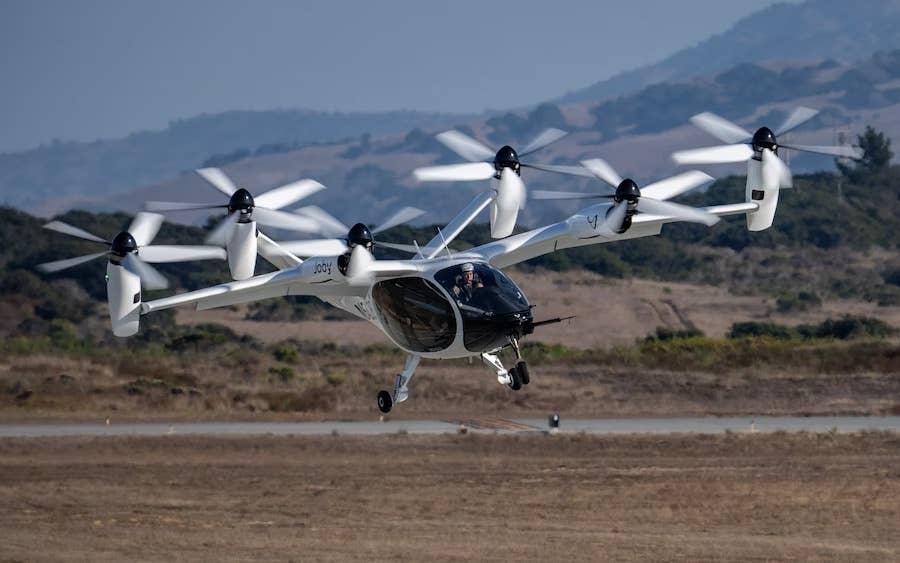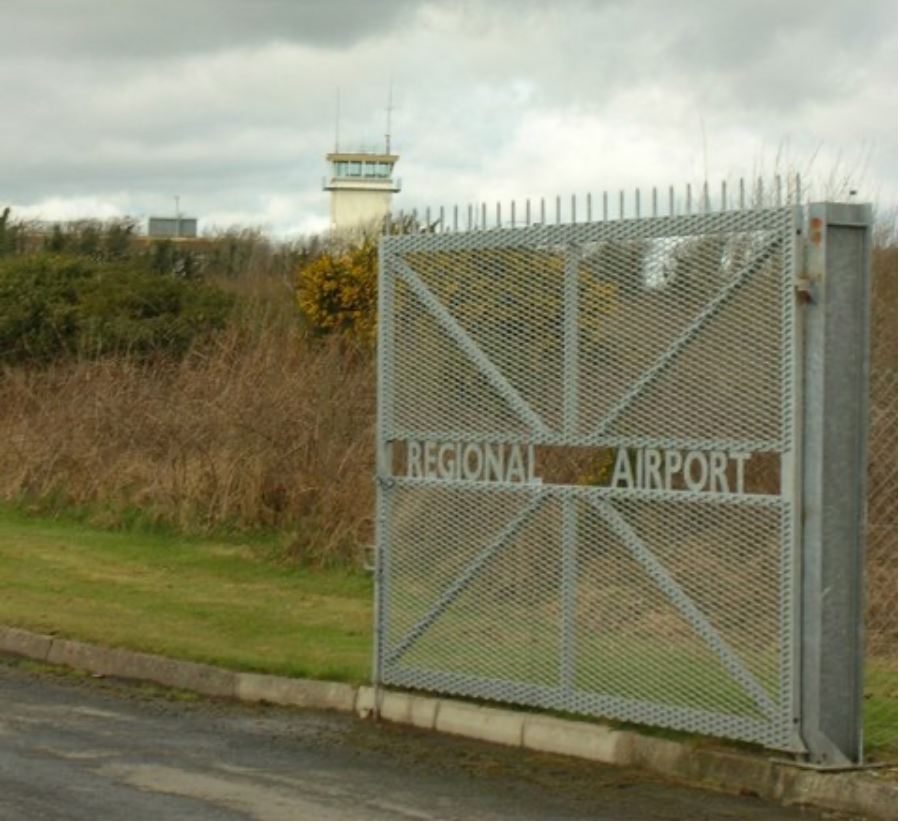Is It Electric Aviation’s Time?
Maturing technology, public acceptance and a new regulatory framework are all aligning.

Photo: Joby
I'm going to miss the internal combustion engine. Ease up climate change deniers. I'm not discussing that. I'm simply reporting the facts and the fact is that for all intents and purposes the technology that propelled we boomers through just about every significant moment of our lives will eventually be replaced by a soulless stator and armature.
For those of you who have coaxed a Volkswagen engine back to life by doing a roadside tuneup, known the exultation of the pull that puts your lawnmower back in business after a half turn of one of the jets or felt the reassuring pressure in the seat back that tells you you're hitting on all eight, you know what I'm talking about. And when that C90 blasts into action in the first half turn, well, you know...
I contemplate all this as I plan the disposition of some gasoline-powered possessions that have been allowed to lapse into disrepair in favor of sending the electrician's kids to private school, buying a new Aston Martin for the drywaller and funding a private island for plumber. As our two-year construction project enters its fifth and final year, I can start thinking about new apex seals for the Renesis rotary engine in the RX-8 (possibly the most underrated sports car ever built) and the replacement for the 1995 Ford F-150 XL that has carried me through this COVID-wracked building process.
Hybrid or pure electric? Probably hybrid, given the horrible range of the electric when towing, which I do a lot. Or should I go full Luddite and rebuild the now very tired 302 in the Ford and fix the rust blemishes? Several of my friends have acquired electric vehicles recently and rave about them. Yeah, they're not perfect but they're pretty close, they insist. Honestly, one more anecdote about driving past the gas station might push me over the edge, though.
I may be sensitive because I already have a low-level electric addiction. I bought the electric chainsaw for my wife, a spirited girl who likes to do whatever is necessary around the yard but was defeated by the intricate hand movements involved in starting the gas-powered saw.
She was delighted when the lightweight electric model was presented as a birthday gift but not as much as I was in the days after. As long as it's kept sharp it will easily handle most yard control activities and since I buy my firewood these days, the old Echo hasn't been started in a few years.
Ditto the weed whacker. As long as you do it every time you mow the lawn, the tiny hardware store electric trimmer with the automatic line feed does everything you need it to. The Stihl gets used, but only on big jobs in the vineyard.
And what does this have to do with aviation? Well, it will take longer, but I'm convinced electric power will be a significant player in aviation. There are already electric trainers in service, but it will really start to manifest in the coming year in the form of the first commercial eVTOL operations. Naysayers have been dismissing these things for a decade, but those that have survived the inevitable culling of every new technology are well-funded, superbly staffed and, thanks to some uncharacteristic regulatory nimbleness by the FAA, ready to go mainstream.
The tech is mind-boggling and the prospects are endless. The early discussions about these things buzzing around urban centers from rooftop hubs has largely gone away. Instead, think about the capabilities of a helicopter with a 200-knot cruise at a fraction of the cost and, in many designs, much less noise. As battery technology improves (solid state is next), the range gap will continue to shrink.
Helicopters have been carrying out so-called urban mobility missions for decades, but they're so costly to operate the market has been self-limiting. From what I can tell, that business is about to change forever. Don't take my word for it. Helicopter Aviation International has changed its name to Vertical Aviation International.
I know. We've been told about brave new worlds in aviation before and some of them have been spectacular failures. For instance, there's only one very light jet in production and two others that are still in productive use but no longer being built.
This feels different. It really seems like eVTOLs will be able to fill roles in aviation that we haven't even considered yet.
For those who think electric stuff is almost as complicit in climate change as fossil fuel power, that is no longer the point.
It's nice that eVTOLs may be a little lighter on the environment but they will succeed only because they can do something different or do something better. It would appear they tick those boxes and may do it cheaper and safer.
As for the chainsaw, do I miss the satisfying wail of that two-stroke in full cry? Maybe a little. But I don't miss mixing gas, adjusting the carb, cleaning the plug or practically dislocating my shoulder trying to start it when one of those is just a little out of whack. I figured that out the first time I depressed the switch and started cutting.
I






